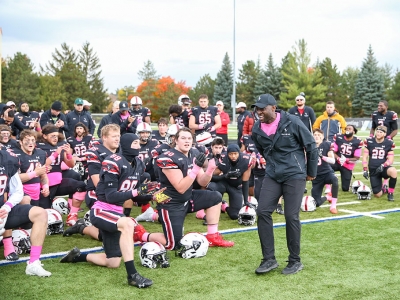By Tyrone Burke
COVID-19 changed everything. Never before has life around the world changed so suddenly and so comprehensively. When it did, researchers quickly took action.
To better understand the human cost of the pandemic, Prof. Linda Duxbury and PhD student Anita Grace of the Sprott School of Business began researching how physical distancing is impacting the ability of Canadians to balance work and family demands and their mental well-being.
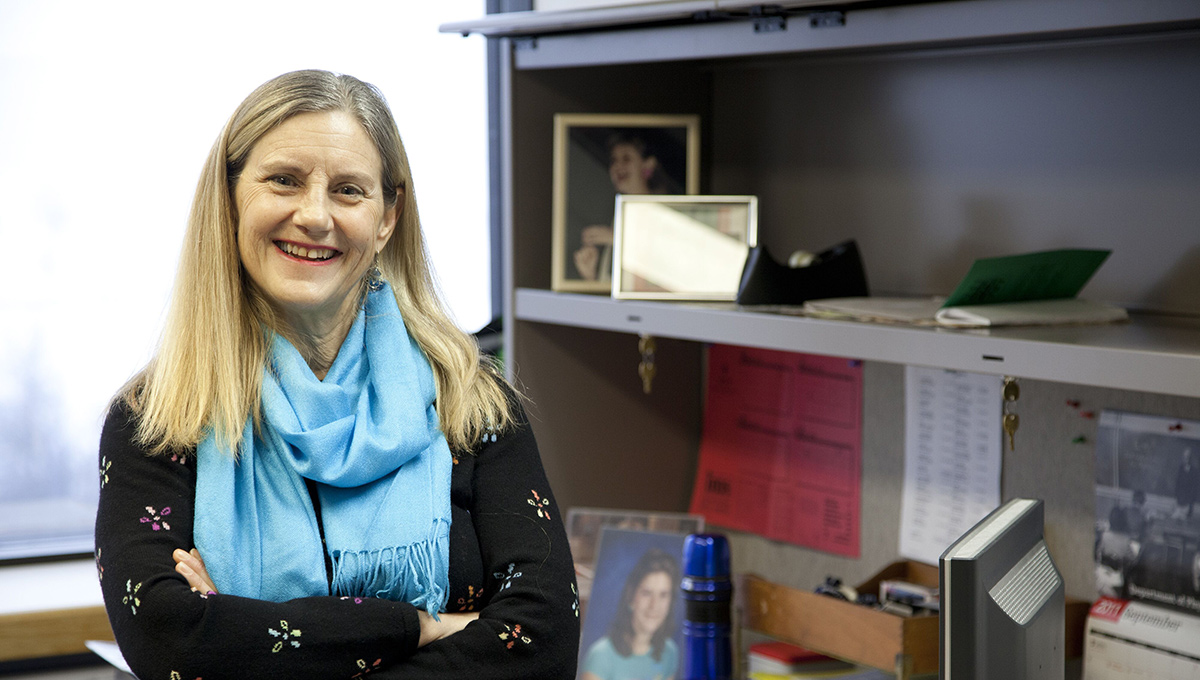
Prof. Linda Duxbury
Mohamed Ibnkahla of the Department of Systems and Computer Engineering is developing remote temperature sensing equipment that could be used in public spaces to identify people who are running a fever and might have COVID-19.
But the pandemic is touching every aspect of our lives, and it demands a response that is bigger than any one discipline. That’s why Carleton is launching the COVID-19 Rapid Response Research Grants program, which will award grants of $10,000 to $25,000 for research that contributes to pandemic response.
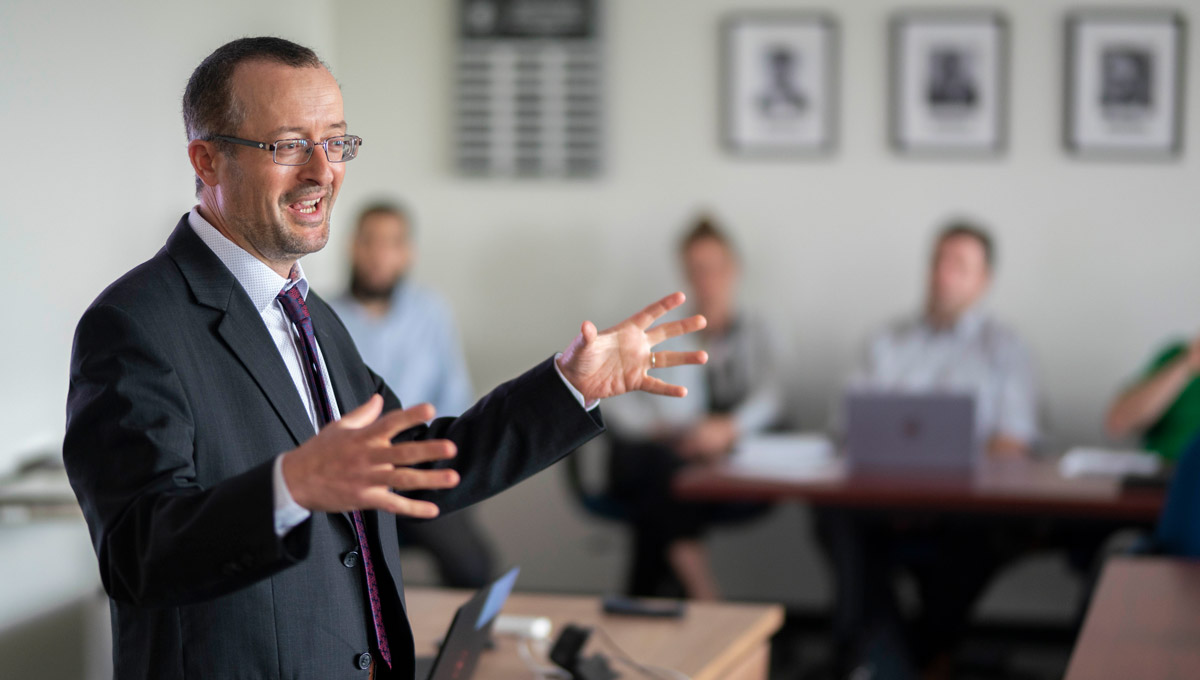
A Response Bigger Than Any One Discipline
The $250,000 initiative has been co-ordinated by the Office of the Vice-President (Research and International) and all five of Carleton’s line faculties: Arts and Social Sciences, Engineering and Design, Public Affairs, Science, and Sprott.
“All of the faculties contributed equally, and all full-time tenured and tenure track faculty are eligible for funding,” says Andrea Lawrance, director of Carleton’s Office of Research Initiatives and Services.

Andrea Lawrance, director of Carleton’s Office of Research Initiatives and Services
“This funding can support research in diverse areas related to COVID-19, including diagnostics, surveillance, public health response, logistics, and national security concerns, to name just a few examples.”
The program will fund research that can be mobilized quickly, and is aiming to make funding decisions within five to eight business days. It will be accepting applications on a continuous basis until May 15, 2020.
“We are going to have a quick turnaround because of the nature of the pandemic,” says Lawrance.
“This program was borne out of a hope to mobilize our researchers, employees and students to make a difference. Within a week of the start of this situation, we were getting requests from researchers about internal funding. They had ideas, and were already mobilizing to apply their research. We are hoping to give them some seed funding to help them respond.”
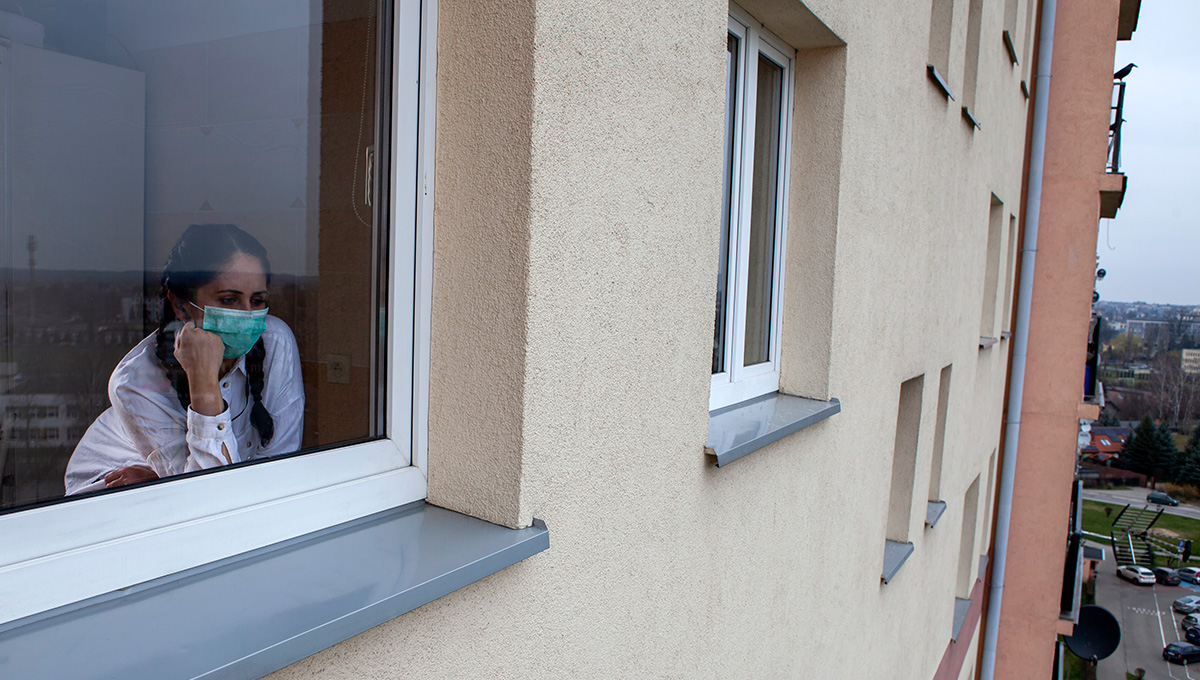
Pivoting Research to Address COVID-19
Only a few months ago, no one at Carleton was working on COVID-19, but many researchers are able to pivot their research to address the broad array of problems that the pandemic is creating.
“When a crisis touches every aspect of our lives, researchers from all academic backgrounds have a valuable contribution to make,” says Rafik Goubran, Carleton’s vice-president (Research and International).
“Scientists can help develop new therapies, biomedical engineers can help keep health-care workers safe with technologies that reduce close contact with infected patients, and social science researchers can study the impact of social distancing and help governments better understand what policies could work – and which ones will not. The COVID-19 pandemic is multifaceted, and our response to it must be equally so.”
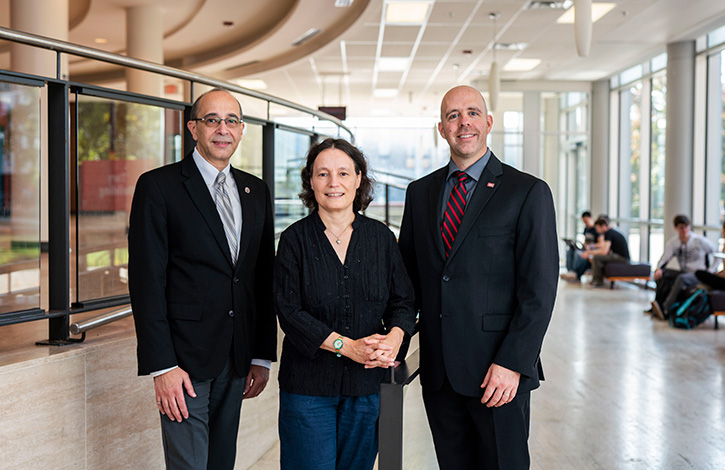
Vice-President (Research and International) Rafik Goubran, Physics Prof. Manuella Vincter and President Benoit-Antoine Bacon
The COVID-19 Rapid Response Research Grants program came together in just four days. Never before has the university launched such a wide-ranging funding initiative so quickly, but Carleton’s academic community has never had such a singular focus.
“The circumstances are unprecedented, and so is our response,” says Carleton President Benoit-Antoine Bacon.
“We have long recognized that the challenges of the future will be complex, and will demand approaches that are collaborative and multidisciplinary. Now, we are faced with exactly this type of challenge. Only by quickly drawing upon the breadth of our collective expertise will we be able to rapidly find solutions.”
Tuesday, April 21, 2020 in Health, Mental Health, Research
Share: Twitter, Facebook

